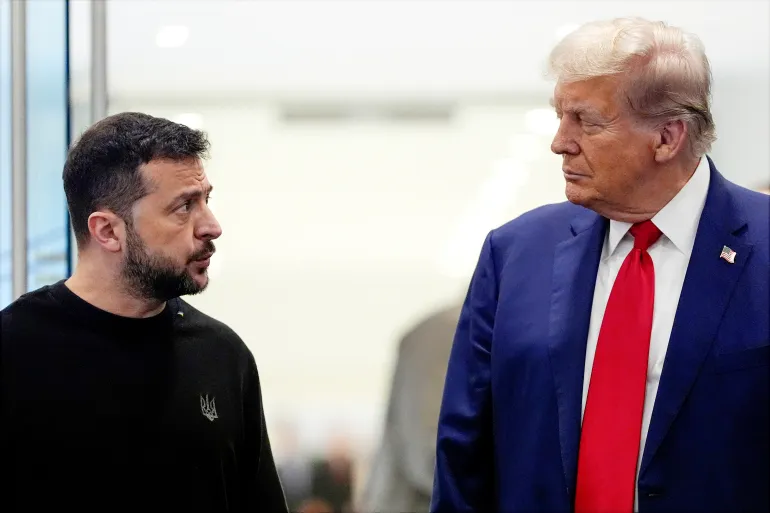U.S. President Donald Trump has intensified his criticism of Ukrainian President Volodymyr Zelenskyy, labeling him a “dictator without elections” and accusing him of prolonging the war with Russia to continue receiving U.S. financial aid.
Trump’s Accusations Against Zelenskyy
In a scathing post on his social media platform, Truth Social, Trump accused Zelenskyy of manipulating the U.S. into spending $350 billion on an unwinnable war. He suggested that the Ukrainian leader was benefiting from American aid, stating, “Zelenskyy probably wants to keep the ‘gravy train’ going.”


Trump echoed these sentiments during a speech at the Future Investment Initiative summit in Miami, where he claimed that Ukraine’s refusal to negotiate peace was putting the country in further danger.
“A dictator without elections. Zelenskyy better move fast or he’s not going to have a country left. That war’s going in the wrong direction,” Trump declared. He also boasted of his ability to broker peace with Russia, saying, “We’re successfully negotiating an end to the war—something only Trump can do.”
Zelenskyy and European Leaders Respond
Trump’s remarks followed Zelenskyy’s earlier comments, where the Ukrainian president suggested that Trump was influenced by Russian disinformation.


German Chancellor Olaf Scholz strongly rejected Trump’s claims, emphasizing that Zelenskyy remains Ukraine’s democratically elected leader. “It is wrong and dangerous to deny President Zelenskyy democratic legitimacy. Ukraine’s constitution allows for the postponement of elections during wartime,” Scholz told Spiegel.
Zelenskyy, in a separate statement, reiterated that Russian President Vladimir Putin could not be trusted in negotiations and urged continued Western support. “Before any potential negotiations, all partners must understand that strong security guarantees are the priority for lasting peace,” he wrote.

Growing Divide Over U.S. Role in the War
Trump’s increasingly critical stance on Ukraine has alarmed European allies, who view his comments as undermining efforts to resist Russian aggression. Meanwhile, with the war in Ukraine approaching its third anniversary, the future of U.S. support remains uncertain under Trump’s leadership.




